Cremona, located in the Lombardy region, is a city that enchants with its rich history, musical heritage e splendid monuments. Known throughout the world as the city of violin makers, Cremona offers a variety of attractions that satisfy both music fans and lovers of art and culture. In this article, we will explore the main attractions not to be missed during a visit to Cremona.
One of the Cremona's most iconic symbols is undoubtedly the Cathedral of St Mary of the Assumptiona masterpiece of Romanesque architecture dating back to the 12th century. This imposing structure dominates the urban landscape with its majestic façade, characterised by intricate decorative elements and architectural details reflecting the skill of medieval craftsmen. The façade is a veritable book of stone, with sculptures and reliefs narrating biblical stories and episodes from the life of Christ. Upon entering the cathedral, one is immediately struck by the interior grandeurmagnificent frescoes decorating the walls and ceiling.
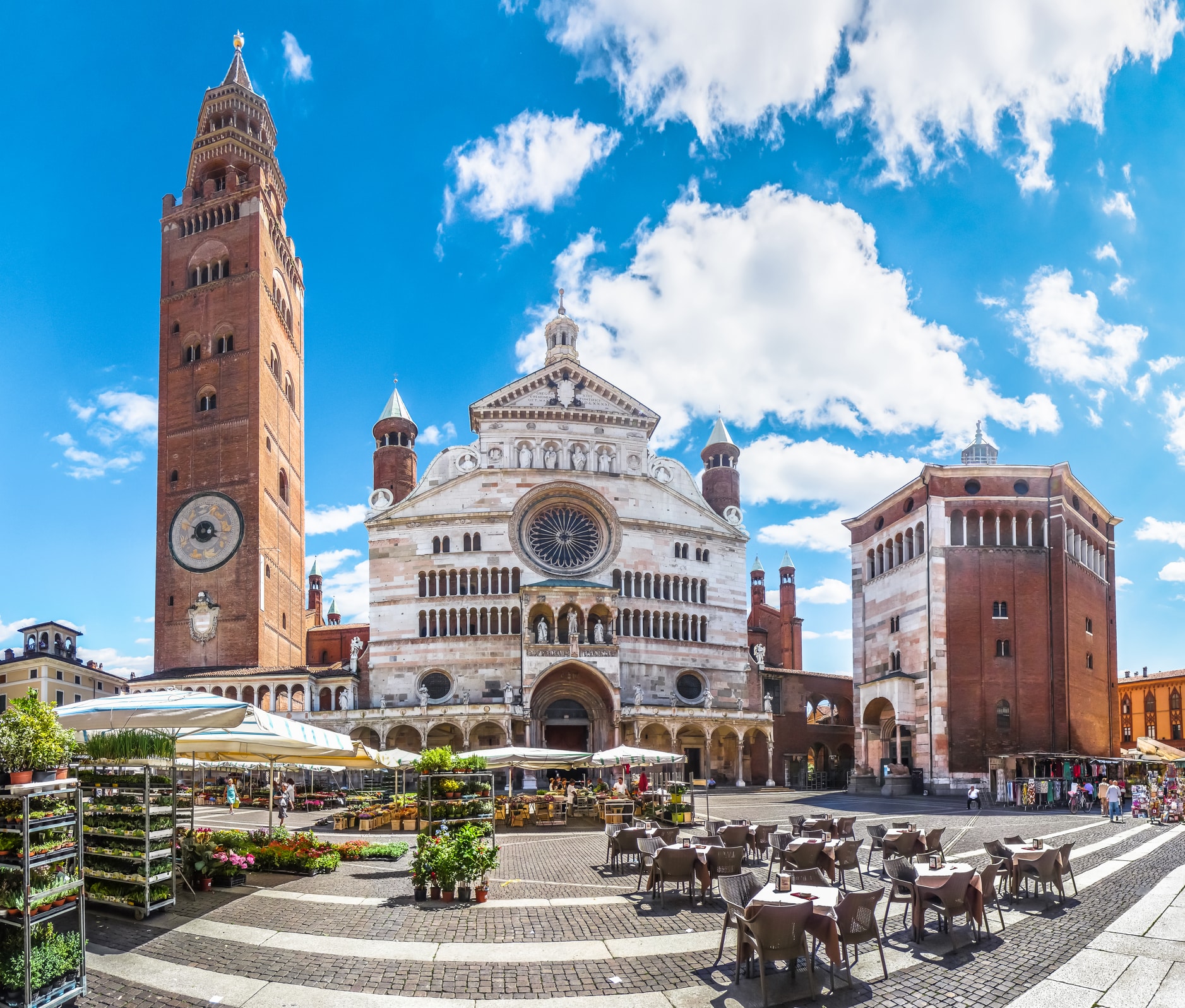
One of the highlights of a visit to Cremona Cathedral is definitely the ascent to the Torrazzothe bell tower of the cathedral. At 112 metres high, the Torrazzo is one of the tallest masonry bell towers in Europe and offers a spectacular panoramic view over the city and the surrounding countryside. The climb, comprising more than 500 steps, is an unforgettable experience that allows visitors not only to appreciate the beauty of the city from above, but also to take a closer look at the complex mechanism of the Torrazzo astronomical clock, one of the largest in the world. The clock, with its ornate dial and intricately worked hands, is an extraordinary example of medieval engineering.
Cremona is inextricably linked to the world of violin making, and the Violin Museum is the perfect place to immerse yourself in this centuries-old tradition. Located in the heart of the city, the museum houses a collection of instruments of extraordinary beauty and historical value, including violins by Antonio Stradivari, Guarneri del Gesù e Amatithe three great master violin makers of Cremona. Each instrument on display is a masterpiece of craftsmanship, representing the pinnacle of Cremonese violin making.
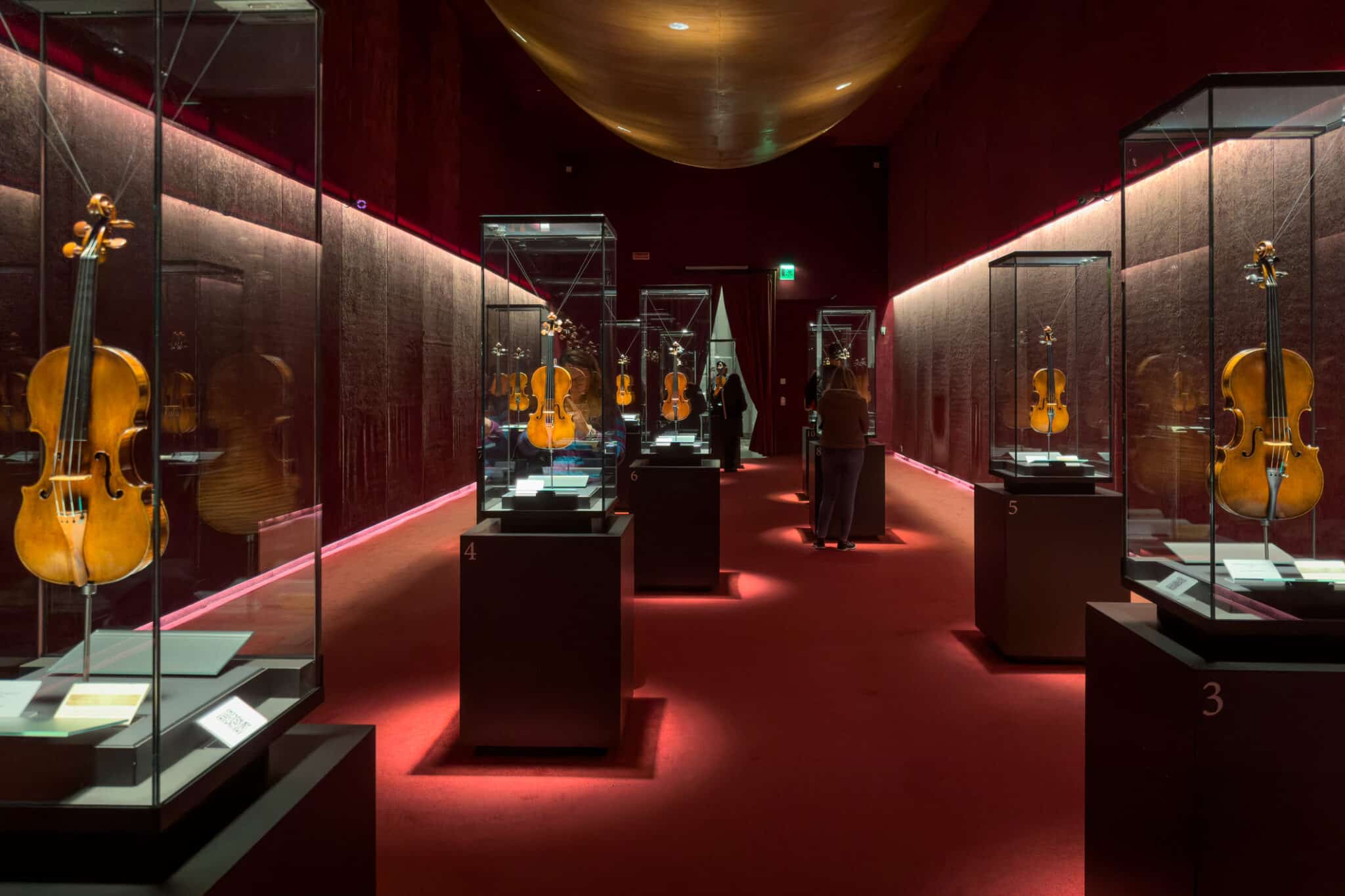
The Violin Museum is not only a static exhibition, but also offers a series of interactive exhibitions that explain the construction process of the instruments and their evolution over the centuries. Visitors can discover how a piece of raw wood is transformed into a violin, passing through the skilful hands of master violin makers. The museum also organises educational workshops and practical demonstrations, where contemporary violin makers can be seen at work, continuing a tradition that has made Cremona famous throughout the world. An unmissable attraction for anyone who loves music and wish to understand the art of violin making, the museum offers an immersive experience that fascinates and educates visitors of all ages.
The heart of Cremona is undoubtedly the Town Hall Squarea vibrant place where history and everyday life intertwine in a timeless embrace. This square is the nerve centre of the city, a meeting point for residents and tourists who wish to immerse themselves in Cremona's unique atmosphere. Here you will find some of the main historical buildings of the city, each with its own story to tell and a particular charm to discover. These include the Town Hall and the Baptisterytwo architectural gems that deserve an in-depth visit.
The Town Halldating back to the 13th century, is a magnificent example of medieval architecture. This imposing building, with its austere façade and severe lines, tells stories of a bygone era when Cremona was a rich and powerful city. Inside the palacevisitors can admire a collection of works of art and historical artefacts that offer a fascinating insight into city life in the Middle Ages. The rooms of the palace are richly decorated, with frescoes and furnishings that testify to Cremona's grandeur and historical importance. Every detail, from the Gothic windows to the heraldic coats of arms, contributes to creating a unique atmosphere that transports visitors back in time.
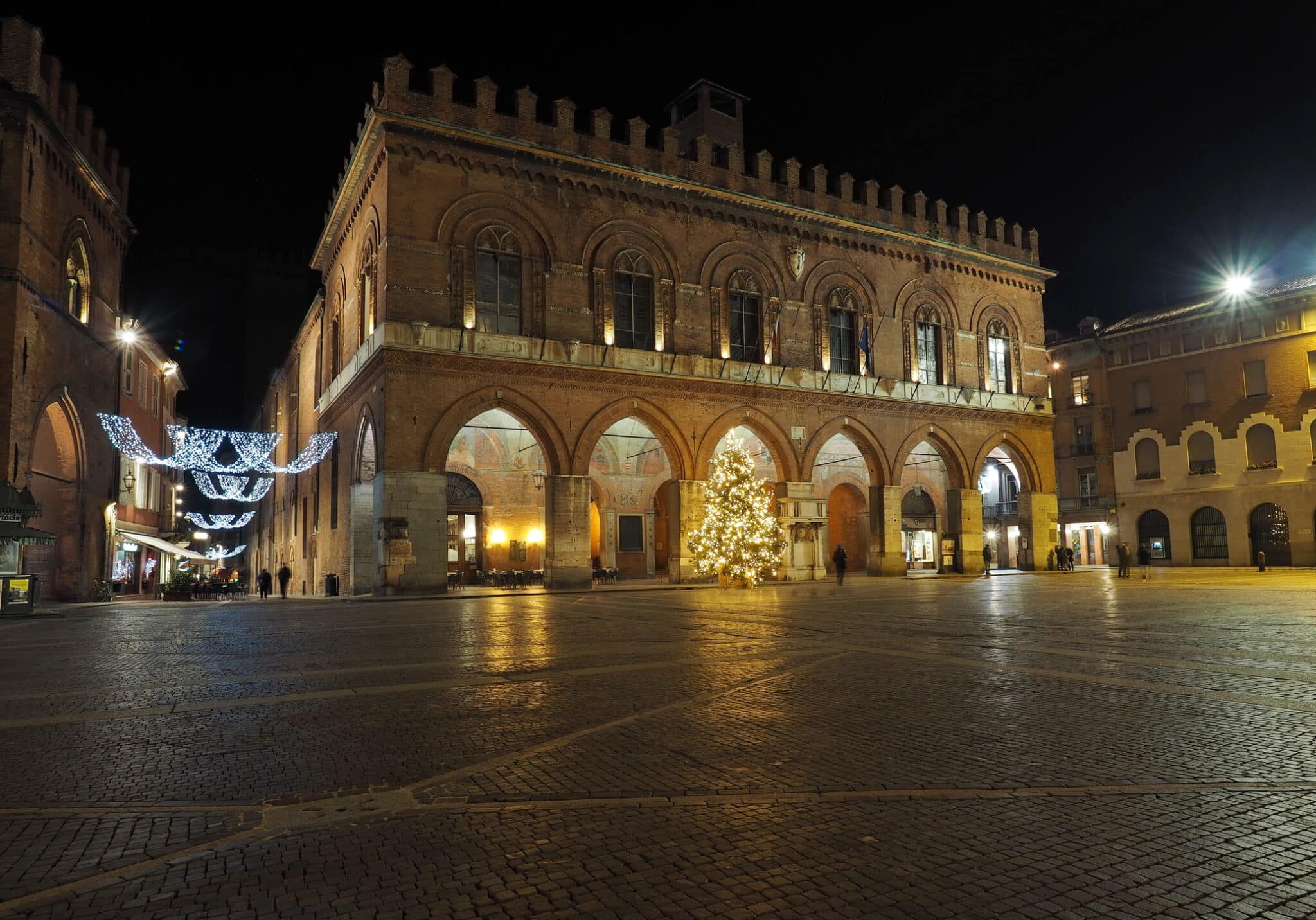
Next to the Town Hall is the Baptisteryanother masterpiece of medieval Cremonese architecture. Built in Romanesque style, the baptistery is famous for its octagonal structure and fascinating interiors. The building is a perfect example of how simplicity of form can create architecture of extraordinary beauty. Inside, visitors can admire an array of decorations and details that make this place of worship a real treasure. Its walls are adorned with frescoes telling biblical stories, while the light filtering through the windows creates an atmosphere of recollection and spirituality. La Town Hall Square is not just a place to see, but an experience to live, where every corner tells a part of Cremona's history.
Another architectural jewel of Cremona is the Church of St Sigismunda superb example of the Lombard Renaissance style. Located just outside the historic centre, this church represents an oasis of peace and beauty, a perfect place for those who wish to get away for a moment from the hustle and bustle of the city and take refuge in a serene and contemplative environment. The interior of the church are a riot of frescoes and decorations, with works by renowned artists such as Bernardino Campi and Bernardino Gatti. Every corner of the church is a masterpiece, an explosion of colours and details that tell stories of faith and devotion.
La Church of St Sigismund is also famous for its cloister, a perfect place for a relaxing stroll. This space, with its tranquil garden and elegant arcades, offers a pause for serenity and reflection. The cloister is an example of how architecture can create spaces that encourage meditation and inner peace. Walking along the arcadesadmiring the finely crafted columns and architectural details, is an experience that allows one to appreciate the craftsmanship of Renaissance artisans.
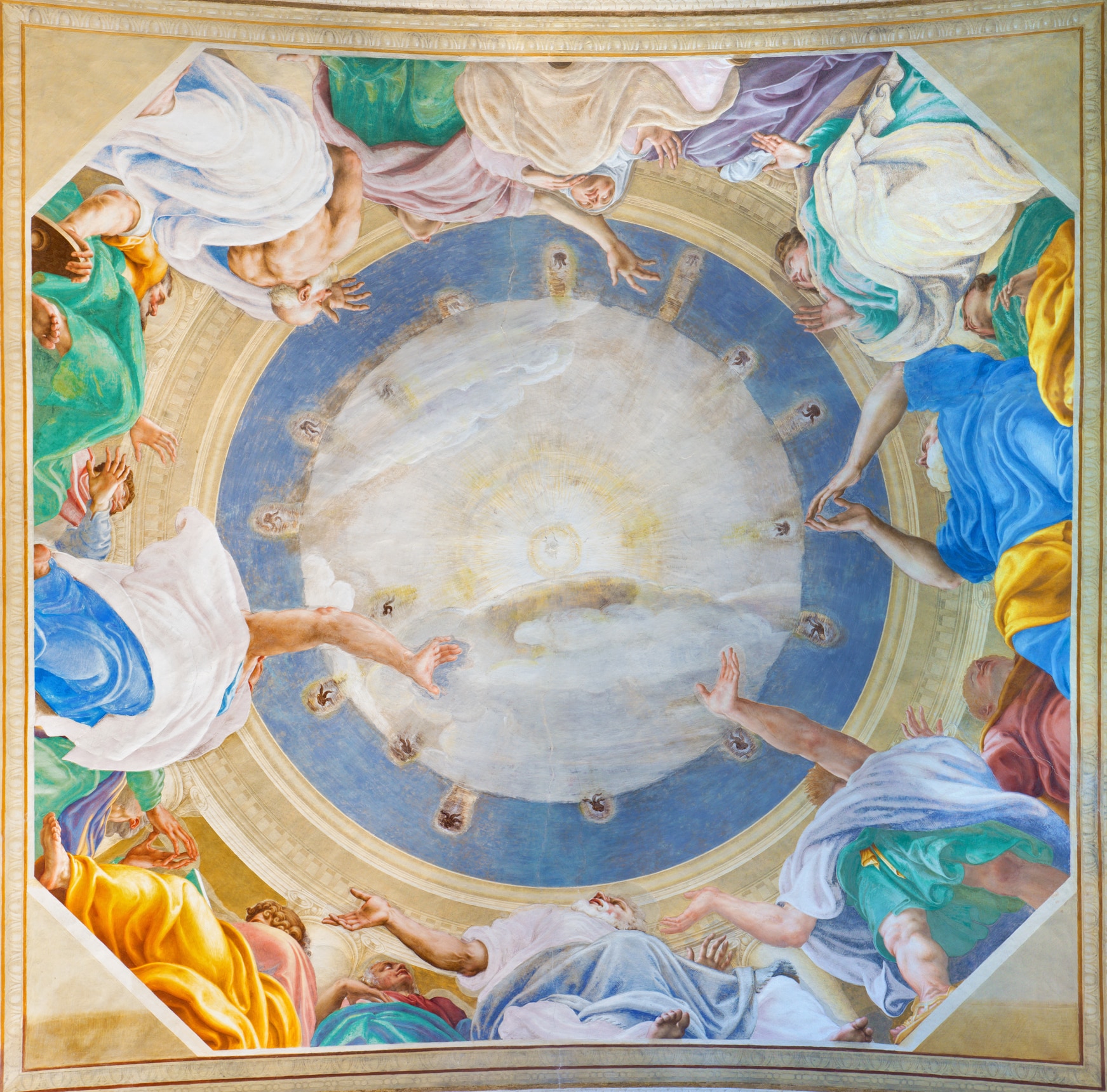
Visit the Church of St Sigismund to discover a piece of history and culture that makes Cremona a unique city. The frescoes, decorations and atmosphere of the cloister offer an artistic and spiritual experience that is unparalleled. The church is a place where art and faith meet, creating an environment that inspires and enriches anyone who visits it. For art lovers, a visit to San Sigismondo is an unmissable opportunity to admire some of the best examples of Renaissance painting and architecture in Lombardy.
For those who are enthusiast of artthe Ala Ponzone Civic Museum is a must during a visit to Cremona. Located in a historical palace in the heart of the city, the museum houses a vast collection of works of art ranging from the Middle Ages to the 20th century, offering a fascinating journey through the centuries. Among the most famous masterpieces exhibited at the museum is Caravaggio's 'Saint Francis in Meditation', a work that attracts numerous visitors every year for its extraordinary emotional intensity and pictorial technique. But the museum does not stop there: it also offers a rich collection of sculptures and decorative arts, which bear witness to the artistic and cultural evolution of the region.
One of the most fascinating aspects of the Ala Ponzone Civic Museum is his collection of historical musical instruments. This section of the museum is particularly significant given Cremona's historical violin-making tradition. The instruments on display include violins, violas, lutes and harpsichords, each representing a piece of musical history. The collection offers an in-depth look at the development of musical instruments over the centuries, highlighting the skill and innovation of Cremonese violin makers. For visitors, this is a unique opportunity to see up close instruments that have played in the courts and theatres of Europe.
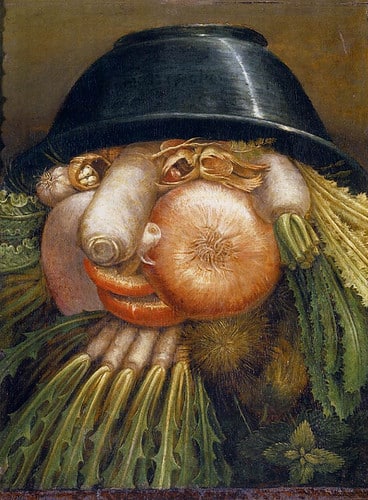
The Ala Ponzone Civic Museum is not only an exhibition venue, but also a centre of cultural and educational activities. The museum regularly organises temporary exhibitions ranging across various themes and artistic periods, always offering visitors new reasons to return. These temporary exhibitions are often accompanied by lectures, workshops and guided tours, enabling visitors to deepen their knowledge of the works and their historical contexts. In addition, the museum offers educational programmes for schools and interactive activities for families, making it a dynamic and welcoming place for visitors of all ages.
Among the Cremona's most elegant buildings, stands out the Trecchi Palacea superb example of Renaissance architecture. Built in the 16th century, this palace has witnessed centuries of history and today represents one of the architectural gems of the city. The interior of the palace are sumptuous and richly decorated, with frescoed rooms telling mythological and allegorical stories. Each room is a masterpiece in itself, with ornate ceilings and walls adorned with finely crafted frescoes and stuccoes.
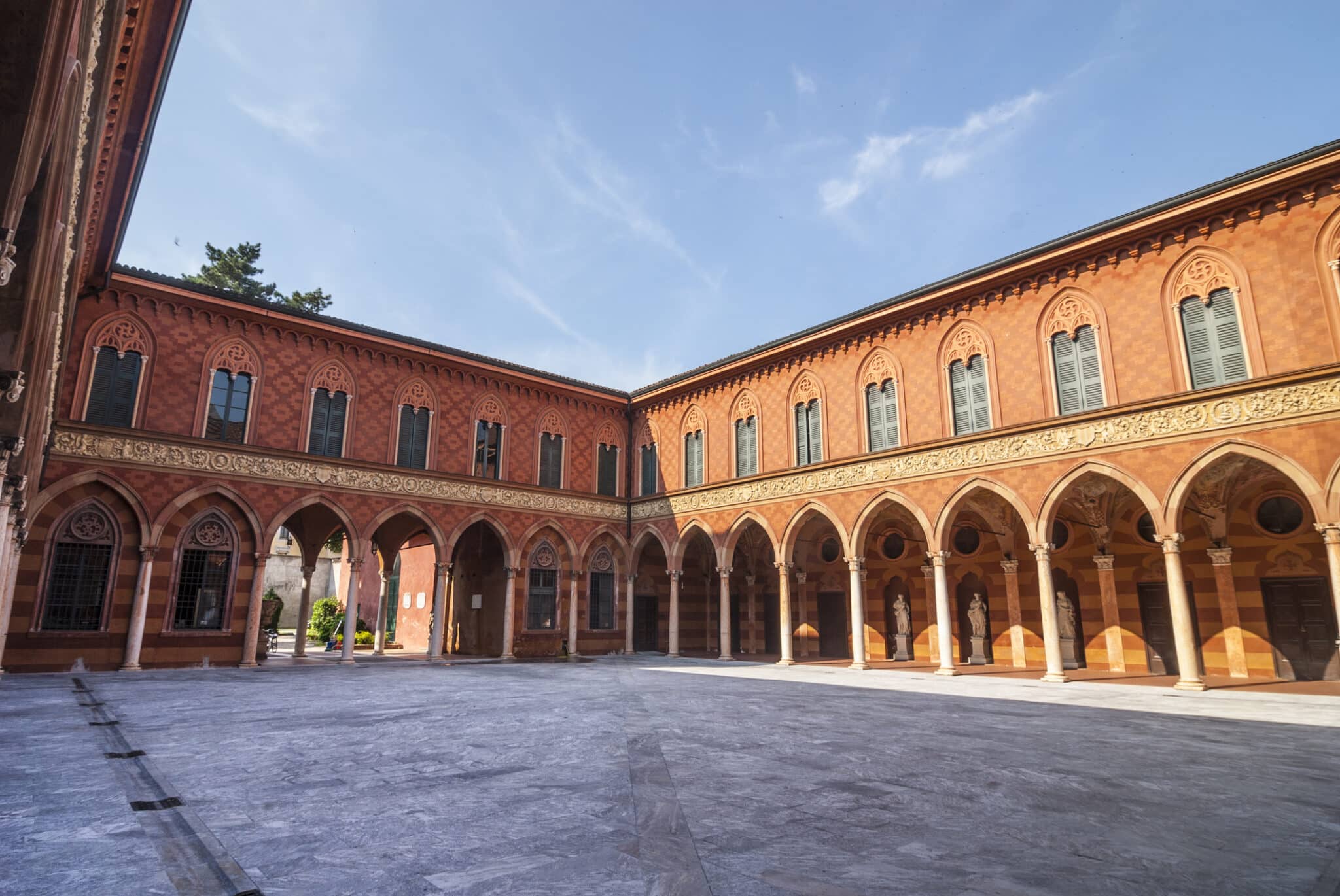
Today, the Trecchi Palace is used for events and ceremonies, providing an elegant and historic backdrop for weddings, conferences and other special events. However, the palace opens its doors to visitors during extraordinary openingsallowing everyone to admire its artistic and architectural beauty. Walking through the corridors and rooms of Palazzo Trecchi is like taking a plunge into Cremona's aristocratic history, reliving the atmosphere of a bygone era.
A visit to the Trecchi Palace is not only an opportunity to admire a magnificent example of Renaissance architecture, but also to discovering stories and legends surrounding this historic place. The palace has hosted numerous illustrious personalities over the centuries, each of whom left their mark on Cremona's history. In addition to the frescoes and decorations, the palace also preserves a collection of period furniture and works of art that contribute to creating an atmosphere of refined elegance. A visit to Palazzo Trecchi is an unmissable experience for anyone who wants to learn more about Cremona's historical and cultural heritage.
Cremona is located along the banks of the River Pothe longest in Italy, and this location gives the city a special charm. A walk along the river offers a different perspective of the city, allowing you to appreciate picturesque views and to relax in the nature. The banks of the Po are dotted with numerous parks and green areas, ideal for a regenerating break away from the hustle and bustle of the city. These parks offer pedestrian and cycle pathsshaded benches and vantage points from which to admire the peaceful flow of the river.
The Po River is perfect for a variety of outdoor activities that attract residents and tourists alike. Cycling is one of the most popular activities: the cycle paths along the river allow you to explore the surroundings of Cremona in a pleasant and sustainable way. For nature lovers, the birdwatching offers the opportunity to observe numerous species of birds that inhabit the wetlands along the river. Boat trips are another fascinating way to discover the Po: several companies offer excursions river that allow visitors to admire the landscape from a unique and relaxing perspective. These activities not only enrich the visitor experience, but also emphasise the importance of the river as a natural and cultural resource.

The River Po is not only a natural wonder, but a real key element of the Cremonese landscape. It has influenced the city's history, economy and culture for centuries. The relationship between Cremona and the Po is also celebrated through various events and manifestations that take place along its banks. These events include festivals, music festivals and sports competitions, all of which contribute to a lively and engaging atmosphere. Exploring the river Po and its surroundings is therefore an excellent way to get in touch with a fundamental part of Cremona's identity, while discovering breathtaking landscapes and corners of unspoilt nature.
You cannot visit Cremona without savouring its delicious traditional cuisinewhich reflects the richness and variety of the territory. Among the typical dishes stand out marubinia stuffed pasta that is often served in broth, offering a taste experience that combines intense and delicate flavours. The mixed boiled meataccompanied by the famous fruit mustardis another traditional dish that is a must for anyone visiting the city. This dish combines several boiled meats, served with a sweet-spicy sauce made of candied fruit and mustard, creating a unique and unforgettable contrast of flavours.
Cremona's culinary tradition is also expressed in its typical sweetswhich are a real treat for the palate. La sbrisolona cake is a rustic almond-based cake characterised by a crumbly texture that crumbles easily, hence its name. But the real confectionery symbol of Cremona is the nougata sweet made from honey, sugar, egg white and almonds, which has a centuries-old history. Cremona nougat is famous all over the world and is celebrated every year during the Nougat Festivalan event that attracts visitors from all over to taste this delicacy and participate in the many activities and shows organised for the occasion.
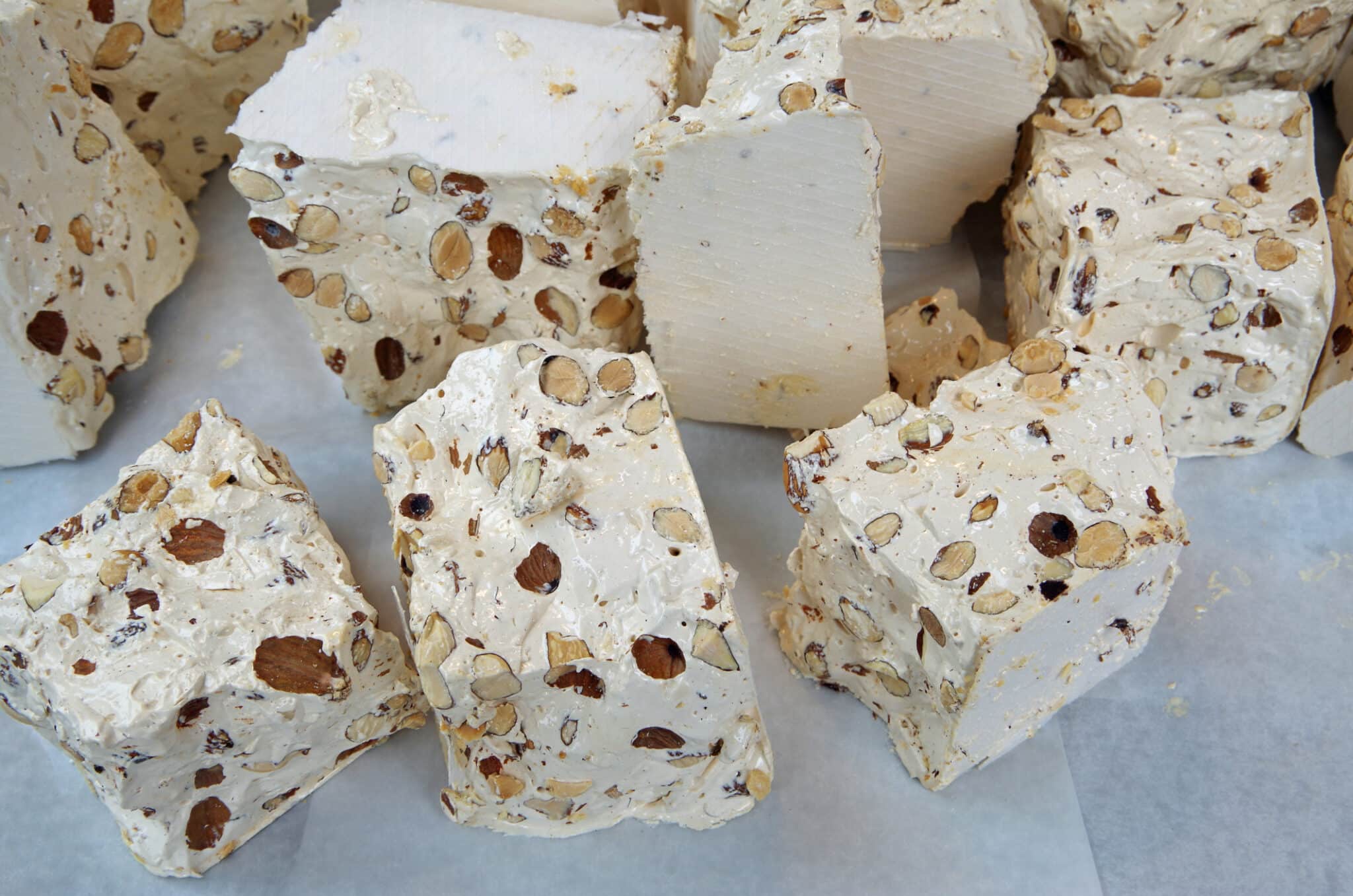
Cremona is a city that knows how to surprise and fascinate with its unique combination of history, art and musical tradition. Every corner of this city tells a story, every monument is a piece of a jigsaw puzzle that makes up a rich and fascinating picture. Visiting it is like taking a journey back in time, to a place where the past and the present meet harmoniously. Cremonese cuisine, with its authentic flavours and traditional recipes, is an integral part of this journey, offering visitors a taste of the city's rich cultural heritage. From hearty dishes to refined desserts, each bite is an experience that reflects the soul of Cremona and its long history of traditions culinary.
We are a young Web Agency with more than 10 years of experience, we love travelling and discovering new places, that is why we write every day on Italia Delight our travel site.

Italia Delight is your definitive guide to Italian restaurants, offering a comprehensive directory and web marketing services to enhance every dining experience. Discover, taste and connect with Italian tradition.
To provide the best experiences, we and our partners use technologies like cookies to store and/or access device information. Consenting to these technologies will allow us and our partners to process personal data such as browsing behavior or unique IDs on this site and show (non-) personalized ads. Not consenting or withdrawing consent, may adversely affect certain features and functions.
Click below to consent to the above or make granular choices. Your choices will be applied to this site only. You can change your settings at any time, including withdrawing your consent, by using the toggles on the Cookie Policy, or by clicking on the manage consent button at the bottom of the screen.